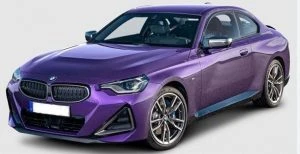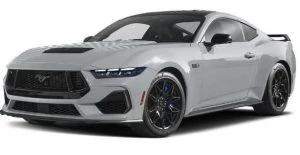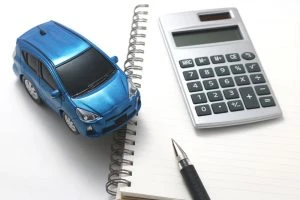Car Sales
The Hot Sports Cars Of 2024
Most people who love driving have dreamed about owning or at least driving a sports car at some point in their lives. Some sports car greats that come to mind are the Porsche 911, BMW M4, Subaru WRX, Ford Mustang, Alfa Romeo Giulia Quadrifoglio, and even Tesla cars. We often hear about Toyota leading the new car sales charts, with Australians also loving the Ford Ranger and other great new utes, along with Mazda SUVs. But what about those of us who love to own and drive a sports car? What are the more commonly sold new sports cars been recently? Let’s take a look.
Our focus here is on the common sports cars, not the crazy wild exotics that tend to be reserved for the rich and possibly famous – the sort of things that most of us can only dream about. We’ll keep things within the bounds of the possible and look at the sports cars that keen Aussie drivers actually purchased.
Helping to shed some light on this question comes from the data that were released by the Federal Chamber of Automotive Industries (FCAI). What’s on their list? Of all the sports cars bought new for under AUD $80,000 last year (2023), 1573 Subaru BRZ Coupes were sold. This made it the number one sports car choice in Australia. The stylish BRZ just pipped the ever-popular Ford Mustang, with 1475 new Mustangs added to our roads last year.

Third spot went to the lovable BMW 2 Series Coupe, which would have to be my personal pick of the bunch. BMW enticed 1164 of the sports car buyers of 2023 to own a new 2 Series Coupe. That’s very impressive for BMW. Interestingly, the Subaru BRZ also beat out its almost identical twin, the Toyota GR86 Coupe sports car, which managed to attract 1144 sales throughout 2023 and popping the GR86 into fourth spot – this was only 20 units shy of the BMW’s tally.

After the tightish competition among the top four sellers, there was a bit of a gap between fourth and fifth place, with sales in the triple figures rather than in the thousands. Surprisingly, at least for me, was that the incredibly popular and stylish Mazda MX-5 had to settle for fifth place getter (653 sales). Also, the quick and fun-to-drive Nissan Z car came in sixth place, with Nissan being able to shift 449 sales.
It is worth mentioning that Ford does have the next-generation Mustang rolling out onto its showroom floors as we speak. This may well be the reason why fewer of these cars were sold last year, as those intending to own a new Mustang may have been holding out to purchase the new model. And who wouldn’t want to spend their money on a new Ford Mustang with all that legendary performance and style? Check out our review of it here.

The Two Most Important Things When Buying A New Car

There are various things to think about when we want to buy a new car. Most importantly, the thought of how much we can afford needs to be right up at the top of the list of things that we need to consider. Here are a couple of the main points we should be pondering and committing to before we sign any dotted lines on the sales document.
What’s The Top Price?
Our budget and what we can afford needs to be the first point that we get clear in our minds. Having a figure that we will stick to sets the price ceiling for us, and this is the figure we take with us around the car sales yards. Any cars over our price ceiling can be omitted from our shortlist. This makes the task even easier, so those vehicles up to the price ceiling are definitely the ones we can enjoy drooling over, learning about, test driving, and even buying as our next new vehicle. This is, of course, where Private Fleet can help you!

What’s The Purpose?
What are we wanting/needing the new vehicle for? Is it because we need more space for a growing family? Maybe we need a new vehicle because it will allow us to carry our elderly parents/in-laws about town or on vacations. It could be that our trusty ute or van that we use for work has finally run its last race, and we need a replacement… fast. Knowing our main purposes for the new vehicle gives us an indication of the type of vehicle and body style we should be looking at.
What I mean is that it won’t be any good getting ourselves a new Toyota Camry hybrid sedan when we will need to take Buster – our large, long coated, and rather boisterous dog – to the local obedience class. Especially not if Buster is accompanied by his brother. A Skoda Ocatvia wagon, a Toyota RAV4, or a Honda CR-V SUV with huge rear boot space would much better to suit our needs – and Buster’s. In this example, even a ute or 4×4 SUV might be the best option, particularly if you love heading down to the beach or heading away on an outdoor adventure in the Outback with Buster and the whole family.
Another example of a purchase fail is if you ended up with a light EV van when you also needed the vehicle to tow a trailer or to cover larger distances far from the urban boundary. Towing really drains that battery quickly, and there’s nothing worse than being caught miles away from the nearest charging station.
Maybe we just need a solo commuter to get us across town to the office for work. The distance to work takes us a total distance of 23 km per day, five days a week, and that’s all you want the new vehicle will do. If this was the case, an EV or hybrid could easily make it onto the list of ideal vehicles. In this case, these sorts of vehicles are ideal for keeping the cost of running right down and the emissions nice and low. Something like a BYD Dolphin or Audi eTron, both of which are EVs, or a hybrid BMW or Toyota could do the trick. It’s all about the price ceiling, however, and there is a big difference between the purchase price of a BYD and the BMW.
Maybe we could even consider a small hatchback for a city commute or even a sedan, both which have a small internal combustion engine (ICE) or a light hybrid powerplant that boasts very good economy ratings but don’t cost much to buy new. In this case, the constraints on our budget and the low price ceiling may point us more towards something like a Suzuki Swift, Kia Picanto or Honda Jazz.
As to how luxurious, expensive, or even exotic our new car may be does depend on our price ceiling. And the price ceiling is what we will have worked out already before heading out on the hunt for a new vehicle. Most manufacturers have a wide range within their model line-up; some more than others. For example, Ford has a base version of its 2024 Ford Everest SUV called the Ambiente that costs around $60k new at the time of writing, a more luxurious Trend ($65–75k), Sports models ($67–82k), and two top of the range Platinum versions stacked with luxury for $84–91k.
If we do our homework, there is no reason why we can’t buy a new vehicle that will be suitable for our needs, be fun to drive, and even be in the colour we want!

New Cars Aren’t Always Super-Expensive!

If you are looking to buy a new car, and your budget allowed a price ceiling of $40k ($40,000), then there is a plethora of opportunity for you out there at the car lot. It has been interesting to observe the changing winds in the car industry. The onset of a wide variety of more affordable new electric vehicles (EVs) becoming available to buyers has meant that the opportunity to own a new EV is becoming much more attainable. There are still some EV issues that need to be seen to before living with an EV becomes a seamlessly easy way of life; however, for some people, the switch to owning an EV has been a good move. If you can charge your vehicle at home, and most (if not all) of your travel is short distances in a city/town environment, then you’re well on the way to being a happy EV convert. Or maybe you are reading this and are feeling smug that you are already a happy convert.
Definitely, there are also many more new hybrid vehicles (vehicles that use battery power to enhance the fuel economy of the internal combustion engine (ICE)) that you can buy. In my humble opinion, these are the best new vehicles to buy, particularly if you want good fuel economy and low emissions but spend time travelling between townships and cities. They offer the best of both worlds. Let’s face it: Australia’s EV infrastructure is improving but still has a long way to go before it is anywhere near perfect.
There are still some great new ICE vehicles that use petrol or diesel on the market for a decent price. Fuel economy has gotten better and better for these types of vehicles, so they still offer a new-car buyer a solid purchase. Thus, particularly if you are employed in any trade that requires travelling plenty of kms, an ICE vehicle or hybrid can’t yet be beaten on practicality. You only need to look at the latest new car sales list to read that ICE and Hybrid utes and SUVs still remain the top purchases.
OK, so what’s out there for under $40k (at the time of writing?
Hybrid Cars/SUVs
- GWM Haval Jolion SUV Hybrid
- GWM Haval H6 SUV Hybrid
- Hyundai i30 Sedan Hybrid
- Hyundai Kona SUV Hybrid
- MG3 Hatch Hybrid
- Toyota Camry Sedan Ascent Sedan Hybrid
- Toyota Corolla Hatch Hybrid
- Toyota Corolla Sedan Hybrid
- Toyota Corolla Cross SUV GX Hybrid
- Toyota Yaris Cross SUV Hybrid
- Toyota Yaris Hatch Hybrid
ICE Cars/SUVs/Utes
- Chery Tiggo 7 Pro SUV
- Chery OMODA 5 SUV
- Fiat 500 Hatch Dolcevito
- Ford Puma SUV
- GWM Ute
- Honda CR-V SUV
- Honda HR-V SUV
- Honda ZR-V SUV
- Hyundai i30 Hatch
- Hyundai Venue SUV
- Hyundai i20 Hatch N
- Isuzu D-MAX Cab Chassis SX High Ride Ute
- Kia Sportage SUV S
- Kia Cerato Hatch
- Kia Cerato Sedan
- Kia Picanto Hatch
- Kia Seltos SUV
- Kia Stonic SUV
- LDV T60 Ute Max Pro
- LDV D90 SUV
- LDV G10 Van+
- LDV V80 Van
- Mahindra PIK-Up Ute
- Mahindra PIK-UP Cab Chassis
- Mahindra PIK-Up Ute Light Truck S+ 4×4
- Mahindra XUV700 SUV 4×4
- Mazda CX-5 SUV
- Mazda 3 Hatch
- Mazda CX-30 SUV
- Mazda CX-3 SUV
- Mazda 2 Hatch
- Mazda 3 Sedan
- Mazda 6 Sedan
- Mazda BT-50 Cab Chassis XS Ute
- Mazda 2 Sedan
- MG ZS SUV Excite
- MG MG5 Sedan
- MG ZST SUV
- MG HS SUV
- Mitsubishi Eclipse Cross SUV
- Mitsubishi ASX SUV
- Mitsubishi Triton Cab Chassis GLX Ute
- Nissan Navara Cab Chassis SL Ute
- Nissan Juke SUV
- Nissan QASHQAI SUV ST
- Renault Captur SUV
- Skoda Kamiq SUV
- Skoda Karoq SUV
- Skoda Scala Hatch 85 TSI Ambition
- Skoda Fabia Hatch Monte Carlo Edition 150
- SsangYong Musso Ute ELX
- SsangYong Korando SUV
- Suzuki Swift Hatch
- Suzuki Vitara SUV
- Suzuki Ignis SUV
- Suzuki S-Cross SUV
- Toyota C-HR SUV GXL
- Toyota Hilux Ute Workmate
- Toyota Hilux Cab Chassis
- Toyota RAV4 SUV GX
- Volkswagen Polo Hatch
- Volkswagen T-Roc SUV City Life
- Volkswagen T-Cross SUV
EVs (Hatchback/SUV)
- GWM Ora Standard Hatch
- BYD Dolphin: Hatch
- MG ZS EV Excite SUV
- MG4 Excite Hatch
- Nissan Leaf Hatch

Some of us are on an even tighter budget. We would love a new a car, but… Well, here’s some good news:
Six new cars under $25,000 (All ICE)
- MG3 Hatch
- Kia Piccanto Hatch
- MG ZS SUV
- Kia Stonic SUV
- Suzuki Ignis SUV
- MG MG5 Sedan
These prices are typical, but have a chat with the helpful team here at Private Fleet, as we may be able to land you an absolutely stellar deal. Also check out our reviews to get more details.

How to Set a Price When Selling Your car
Selling your car might seem like a simple prospect, but it also entails challenges. Whether you’re upgrading to a new model, downsizing, or simply looking for a change, one of the most important things when selling your current car is to get the right price right.
If you end up mispricing your car, you might not be able to afford your next purchase. That’s why you need to be realistic and find the right balance. With that in mind, these are the things you should consider when setting a sale price for your car.
Due Diligence
Before you come to setting a sale price, do your due diligence. Browse online platforms, such as car selling websites, to gauge the prices of similar makes and models. Consider factors like the build year, mileage, condition, and any additional features your car might have. This preliminary research will provide a solid foundation for determining a competitive price.
Assess the Condition of Your Car
Take a good look at your car’s condition. Assess both the exterior and interior for any signs of wear and tear. Mechanical issues, dents, scratches, and the overall cleanliness of the vehicle can significantly impact its resale value. You may need to perform minor repairs to get the vehicle in an appropriate condition to maximise its appeal.

Depreciation
Unless you’re holding a vintage classic, all cars depreciate over time. Consider the depreciation rate of your vehicle and adjust your price accordingly. Generally speaking, new cars depreciate faster across the first years of ownership, whereas older models hold their value relatively better.
Key Features
You may be able to drive a higher price for your car if it has some sort of special features or distinctive selling points that warrant a higher price. These features don’t necessarily need to be tangible either. For example, low mileage on the odometer is a favourite for many prospective buyers, and it will set your car apart from others on the market. Registration is another distinctive point.
Selling Costs
When setting your price, you will also need to take into consideration the costs associated with the sale. Whether it be listing costs, inspection fees, vehicle history reports, or change of ownership, the sale price should reflect these additional expenses.
Most importantly, expect there to be some negotiation. With this in mind, it’s not uncommon to set your asking price slightly higher than your firm sale price. Not only does this provide you with some flexibility during negotiations, but in a booming market buyers may be willing to pay ‘overs’ for a popular second-hand vehicle.
Understand, however, that it can take time to sell a car via the private market, especially if you are unprepared to negotiate. You can always take a look at trading in your car towards a new one, but the question here centres on your priorities and whether you are getting the most value out of your current car.